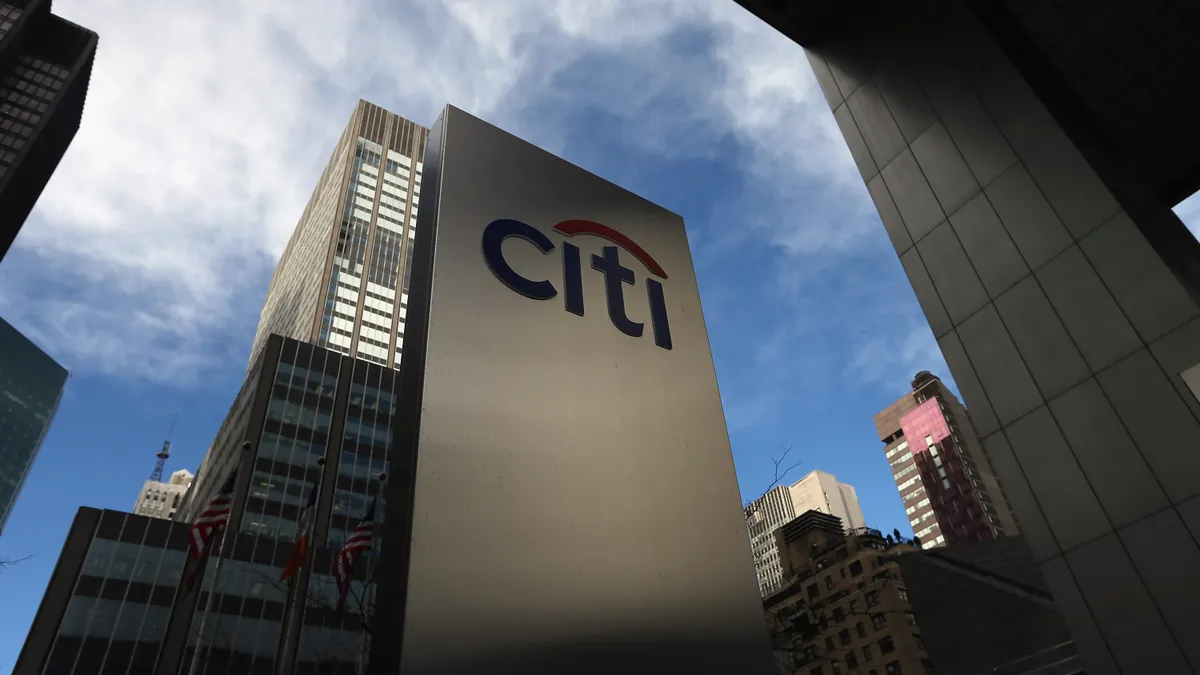Citigroup said an independent review of historical documents has found that the lender and other companies had ties to slavery, and it benefited from the U.S. slave trade.
Predecessor entities that became a part of the New York-based bank presumably profited from the financial transactions or business relationships with entities that owned enslaved people or utilized their labor, according to a summary of the research.
"…some Citi predecessor entities likely indirectly profited from the institution of slavery through financial transactions and relationships with individuals and entities located or operating in the United States before 1866," Edward Skyler, head of enterprise services and public affairs, said in a blog post Thursday.
The review also confirmed previous research that found Citi or a predecessor institution did not directly purchase, sell or hold enslaved persons.
Citi appointed an independent historical firm to conduct a review as part of the racial equity pledge it made after a Minneapolis police officer murdered George Floyd in 2020. In the wake of the murder, Citi pledged to spend $1.15 billion over the next three years on initiatives aimed at closing the racial wealth gap and promoting anti-racist financial practices.
Over the months following the police killings of George Floyd, Breonna Taylor, and others, banks have increased their focus on racial equality with Bank of America, PNC, U.S. Bank and smaller lenders like Huntington Bank pledging billions of dollars collectively to promote Black homeownership, businesses and Black-owned depository institutions.
"Inequities resulting from the United States' history of slavery have shaped barriers that Black communities continue to face more than 150 years after the abhorrent practice was abolished," Skyler said in the post.
He noted the findings aligned with the company's Action for Racial Equity that Citi made last year. As part of the commitment, Citi will help to minimize the racial wealth gap by expanding its financial inclusion products in communities of color and supporting diverse entrepreneurs, Skyler noted.
"None of this changes the past, but it can help make for a more equitable future," he added.
The research firm reviewed documents from Citi's archives and the records at the New York Public Library's Manuscript and Archives Division, Cornell University, the Alabama Supreme Court and State Law Library, and the Library of Congress.
A part of the research found that Moses Taylor, a former director and president of City Bank of New York, one of Citigroup's predecessor companies, was associated with the sugar trade in Cuba. Taylor's external businesses with accounts at Citi, which imported sugar from Cuban plantations, used slave labor.
"…City Bank of New York likely profited indirectly from enslaved labor in Cuba by engaging in transactions with Taylor and his businesses," the report said.
Moreover, other founding members or early City Bank of New York directors possibly enslaved people, the study noted.
Citi's latest research is not the first investigation a major company has conducted in connection to slavery. In the early 2000s, states and cities, including California, Milwaukee and Chicago, passed measures requiring companies doing business with them to disclose any previous ties to slavery, according to The New York Times.
Some of the bank’s peers found instances of predecessor institutions owning enslaved people, written insurance contracts on them or accepting them as collateral for loans, the publication reported. But Citi denied any such direct involvement.
A representative for the bank declined to comment to the outlet.














